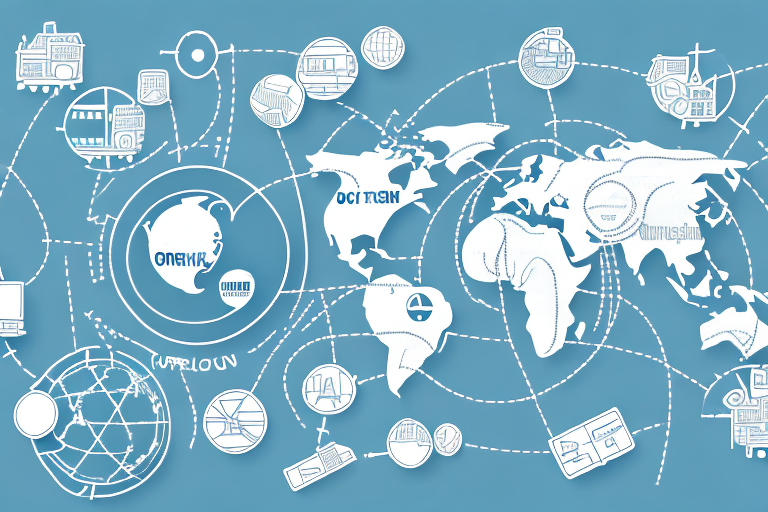Finding the Right 3PL Broker for Your Business
In the transportation industry, 3PL brokers are essential partners in optimizing supply chains and enhancing profitability. With a multitude of 3PL brokers available, selecting the ideal partner for your business can be daunting. This guide provides an in-depth analysis of 3PL brokers, offering insights and strategies to help you make an informed decision.
Understanding the Role of a 3PL Broker in Your Supply Chain
Third-party logistics (3PL) brokers serve as intermediaries between businesses and carriers, facilitating the transportation of goods efficiently and cost-effectively. They manage essential tasks such as sourcing carriers, negotiating rates, and ensuring the safe delivery of products from origin to destination. According to Grand View Research, the global 3PL market size was valued at $1,070 billion in 2022 and is expected to grow significantly, highlighting the importance of 3PL providers in modern supply chains.
Key Responsibilities of a 3PL Broker
- Carrier Sourcing and Negotiation: Leveraging industry connections to find reliable carriers and negotiate favorable rates.
- Transportation Management: Coordinating shipments, optimizing routes, and ensuring timely deliveries.
- Compliance and Documentation: Managing regulatory requirements and necessary paperwork for domestic and international shipments.
Importance in Supply Chain Efficiency
By handling the complexities of transportation logistics, 3PL brokers allow businesses to focus on their core competencies. Their expertise can lead to up to a 20% reduction in transportation costs and a significant improvement in delivery times, as reported by the Council of Supply Chain Management Professionals (CSCMP).
Benefits of Partnering with a 3PL Broker
Collaborating with a 3PL broker offers multiple advantages that can enhance your business operations.
Cost Savings
3PL brokers have the negotiating power and industry insights to secure competitive rates, often resulting in cost savings of 10-15% on transportation expenses. Their ability to consolidate shipments and optimize routes further contributes to reducing overall costs.
Expertise and Industry Knowledge
With deep industry knowledge, 3PL brokers stay updated on the latest trends, regulations, and best practices. This expertise ensures that your logistics operations comply with all relevant laws and adapt to changing market conditions.
Customized Solutions
3PL brokers offer tailored solutions to meet the unique needs of your business, whether it's handling perishable goods, managing high-value products, or ensuring timely delivery for just-in-time manufacturing processes.
Choosing the Right 3PL Broker: Services and Factors
Selecting the appropriate 3PL broker involves evaluating their services and assessing critical factors to ensure alignment with your business objectives.
Types of Services Offered
- Transportation Management: Overseeing the movement of goods across various transportation modes.
- Freight Forwarding: Managing international shipping logistics, including customs clearance.
- Warehousing and Distribution: Providing storage solutions and managing distribution networks.
- Technology Integration: Utilizing advanced software for real-time tracking and data analytics.
Factors to Consider When Selecting a 3PL Broker
- Experience and Expertise: Look for brokers with a proven track record in your industry.
- Reputation and References: Check reviews and seek references to gauge their reliability and performance.
- Technology Capabilities: Ensure they offer robust technology solutions for transparency and efficiency.
- Scalability: The ability to scale services as your business grows.
- Financial Stability: A financially stable broker is less likely to face disruptions that could affect your supply chain.
Building a Strong Relationship with Your 3PL Broker
Establishing a collaborative and transparent relationship with your 3PL broker is vital for mutual success.
Effective Communication
Maintain regular and open communication channels to ensure that both parties are aligned on goals, expectations, and any issues that arise. Tools like collaborative platforms and regular meetings can facilitate this process.
Transparency and Trust
Be clear about your business needs and provide accurate information to your broker. In return, expect transparency regarding their processes, performance metrics, and any challenges encountered.
Collaborative Problem-Solving
Work together to identify and address inefficiencies or disruptions in the supply chain. A proactive approach to problem-solving can prevent minor issues from escalating into significant disruptions.
Overcoming Challenges When Working with a 3PL Broker
While partnering with a 3PL broker brings numerous benefits, challenges can arise. Addressing these proactively ensures a smoother collaboration.
Common Challenges
- Miscommunication: Misunderstandings regarding expectations and responsibilities can hinder efficiency.
- Lack of Visibility: Insufficient tracking and monitoring can lead to delays and uncertainty.
- Integration Issues: Difficulty integrating the broker's systems with your own can impede data flow and decision-making.
Solutions and Best Practices
- Clear Contracts and Agreements: Define roles, responsibilities, and performance metrics in writing to avoid ambiguities.
- Implement Technology Solutions: Use integrated platforms for real-time tracking and information sharing.
- Regular Reviews and Feedback: Schedule periodic reviews to assess performance and address any issues promptly.
Measuring the Success of Your 3PL Partnership
Evaluating the effectiveness of your relationship with a 3PL broker is essential to ensure that your logistics operations are optimized.
Key Performance Indicators (KPIs)
- On-Time Delivery Rate: Measures the percentage of shipments delivered on schedule.
- Cost Savings: Tracks reductions in transportation and logistics costs.
- Customer Satisfaction: Assesses the impact on your end customers' satisfaction levels.
- Inventory Accuracy: Evaluates the precision of inventory management and order fulfillment.
- Carrier Performance: Reviews the reliability and efficiency of the carriers used by your broker.
Regular Performance Reviews
Conducting regular performance evaluations with your 3PL broker helps identify areas for improvement and reinforces successful practices. Utilize data analytics and feedback mechanisms to support these reviews.
The Future of 3PL Brokers: Trends and Predictions
The role of 3PL brokers is evolving with advancements in technology and shifting market demands.
Technological Advancements
The adoption of artificial intelligence, machine learning, and automation is transforming logistics operations, enabling more accurate forecasting, real-time tracking, and enhanced decision-making capabilities.
Sustainability and Green Logistics
There is a growing emphasis on sustainable logistics practices. 3PL brokers are increasingly integrating eco-friendly solutions, such as optimizing routes to reduce carbon emissions and utilizing electric or hybrid vehicles.
Globalization and E-commerce Growth
The expansion of global markets and the surge in e-commerce are driving demand for 3PL services that can handle complex international logistics, including customs brokerage and multi-modal transportation solutions.
Conclusion
Partnering with the right 3PL broker can significantly enhance your supply chain efficiency, reduce costs, and provide strategic advantages in a competitive market. By understanding their role, evaluating the benefits, carefully selecting the right partner, building a strong relationship, overcoming challenges, and measuring success, your business can leverage 3PL brokers to achieve sustained growth and operational excellence.




















